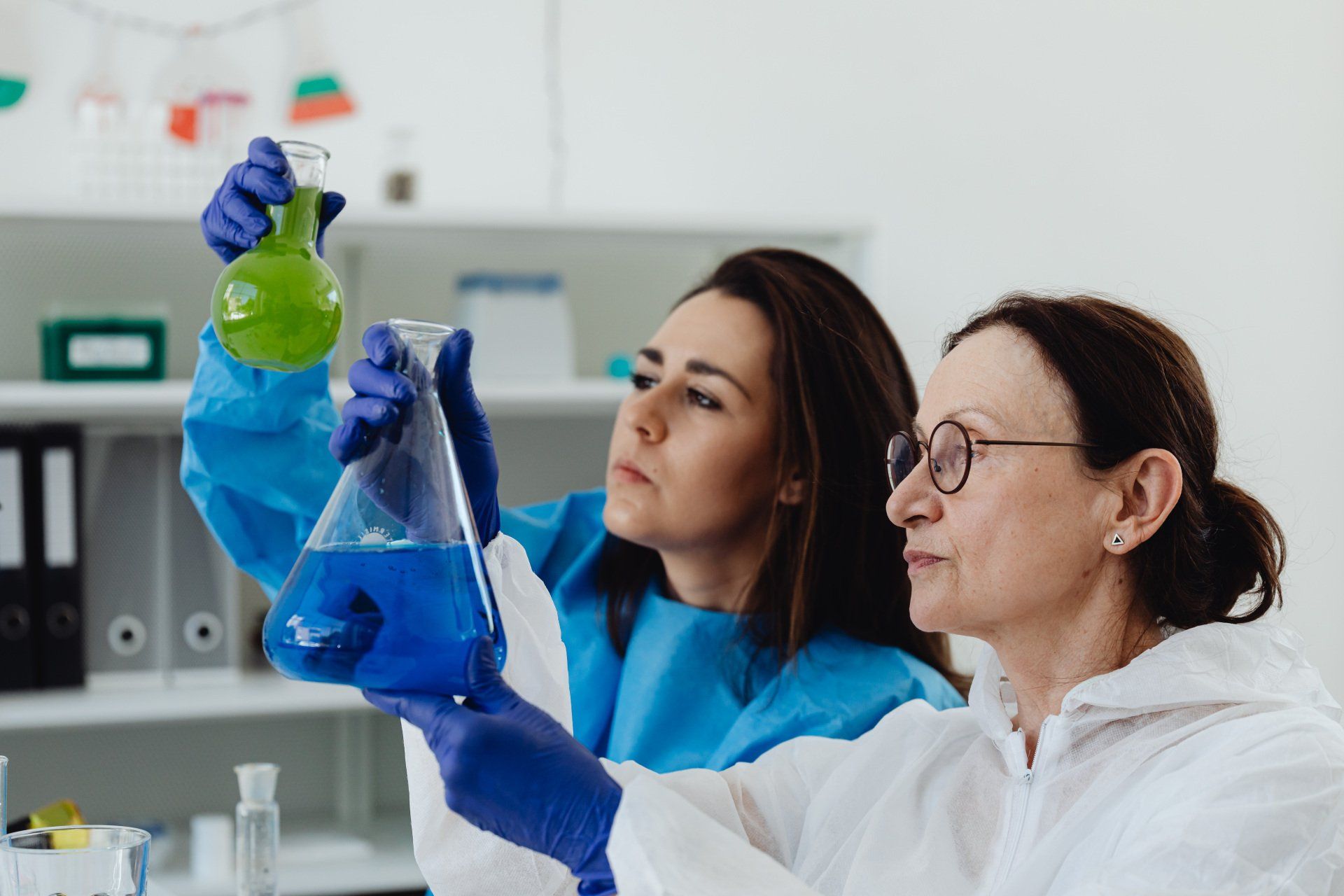Who is Palm Beach BIO?
ABOUT
Palm Beach BIO was founded on the idea of bringing together laboratories, pathologists, and healthcare professionals to create a network that will accelerate new therapeutic and diagnostic discovery. This unique approach to partnerships provides the research community with the highest quality human biospecimens, sub-specialized pathology expertise, and laboratory services. At Palm Beach BIO, our unwavering commitment to our values of service, integrity, quality, and creativity guides everything we do. We believe in delivering exceptional service to our customers based on these values.

Establish an unparalleled nationwide network comprising sub-specialty pathologists, specialzed laboratories, hospitals, and healthcare professionals dedicated to expediting global research by enhancing accessibility to human biosamples, pathology expertise, and laboratory services.

Empower researchers in advancing personalized medicine and fostering community well-being through accelerated development of drug discovery and diagnostic testing services.

Service | Integrity | Quality | Creativity
At Palm Beach BIO, our unwavering commitment to service, integrity, quality, and creativity guides everything we do. We believe in delivering exceptional service to our customers based on trust and integrity. We hold ourselves to the highest standards of quality, ensuring that every product and service we provide meets and exceeds our customers' expectations. We embrace creativity and innovation as essential elements of our culture, fostering an environment where new ideas flourish and enable us to continuously improve and adapt. These values are not just words on paper; they are the principles that drive us to be a reliable, ethical, and a innovative partner in everything we undertake. We are dedicated to making a positive impact on the lives of our customers, patients, employees, and the communities we serve.
The Benefits of Human Biosamples and Pathology Services
Human biosamples, such as blood, tissue, and genetic material, play a critical role in drug discovery and development. These samples provide essential insights into the biological mechanisms of diseases and the effects of potential drug candidates.
How are human biosamples used in drug discovery:
- Target Identification and Validation: Biosamples are used to identify and validate drug targets, such as specific proteins or genes involved in disease processes. Researchers analyze these samples to understand the role of these targets in disease development.
- Biomarker Discovery: Biosamples help in the discovery of biomarkers, which are specific molecules or genetic markers associated with diseases. Biomarkers can be used for early disease detection, patient stratification, and monitoring treatment responses.
- Toxicology and Safety Testing: Biosamples are used to evaluate the safety and toxicity of drug candidates. These samples help in understanding how drugs affect human tissues and organs and whether they cause adverse effects.
- Pharmacokinetics and Pharmacodynamics (PK/PD): Biosamples are essential for determining how drugs are absorbed, distributed, metabolized, and eliminated in the body (pharmacokinetics) and how they affect the body's biological processes (pharmacodynamics).
- Clinical Trial Biomarker Monitoring: During clinical trials, biosamples collected from patients help monitor the effects of the investigational drug, assess safety, and evaluate its efficacy. Biomarkers can be used to measure treatment responses and patient outcomes.
- Personalized Medicine: Biosamples are integral to the development of personalized medicine. By analyzing a patient's genetic and molecular profile, researchers can tailor treatment plans to the individual, ensuring a more targeted and effective approach.
- Disease Mechanism Understanding: Biosamples provide valuable insights into the molecular and cellular mechanisms of diseases, helping researchers understand the underlying causes and identifying potential therapeutic interventions.
- Biobanks and Repositories: Biobanks store biosamples from diverse patient populations, making them available for future research and drug development. These repositories facilitate large-scale studies and collaborative research efforts.
- Drug Response Prediction: Biosamples can help predict how individual patients will respond to a particular drug, allowing for the selection of the most appropriate treatment for each patient.
- Genomic and Proteomic Studies: Genetic and protein analyses of biosamples provide data that can be used to identify disease-specific variations, pathways, and potential therapeutic targets.
Pathology and laboratory services play a vital role in drug discovery and development by providing essential diagnostic and analytical support throughout the process.
Examples of how pathology and lab services are used in drug discovery:
- Disease Biomarker Identification: Pathology and lab services are crucial for identifying disease-specific biomarkers, which are molecules or cellular changes that can be used to diagnose diseases and assess their progression. These biomarkers help in understanding disease mechanisms and developing targeted therapies.
- Early Disease Detection: Diagnostic tests and pathology services are used to detect diseases in their early stages. Early detection is vital for timely intervention and can be a key focus in drug discovery efforts.
- Patient Stratification: Pathology services help in identifying subpopulations of patients with distinct disease characteristics. This patient stratification enables more precise targeting of drug therapies, as certain drugs may be more effective in specific patient groups.
- Pharmacokinetics and Pharmacodynamics (PK/PD): Laboratories help in determining how drugs are absorbed, distributed, metabolized, and eliminated in the body (pharmacokinetics). They also analyze how drugs affect biological processes (pharmacodynamics), providing essential data for drug development.
- Clinical Trial Support: Pathologists and laboratory services are instrumental in analyzing patient samples collected during clinical trials. They evaluate treatment responses, assess the effects of the investigational drugs, and ensure patient safety throughout the trial.
- Drug Efficacy Assessment: Pathology services help evaluate the effectiveness of drug candidates by examining the impact on disease-related tissue samples, such as tumor biopsies. This is particularly important in oncology and other diseases with defined tissue-based endpoints.
- Molecular Profiling: Laboratories perform molecular profiling of patient samples, including genomics, transcriptomics, and proteomics. These analyses help identify potential therapeutic targets and assess drug responses.
In summary, human biosamples, pathology consultation, and laboratory services are integral to drug discovery and development. They provide essential data and diagnostic support that aids in target identification, drug safety evaluation, clinical trial support, and the overall understanding of diseases and drug responses. Join the Palm Beach BIO network, these services are critical for the successful development of new therapies and ultimately advancing the field of medicine and improving patient care and outcomes.
888-647-2833
2000 PGA Blvd. Suite 4440-206
Palm Beach Gardens, FL 33408
info@palmbeachbio.com
www.palmbeachbio.com
Copyright Palm Beach Bio, LLC. 2024
